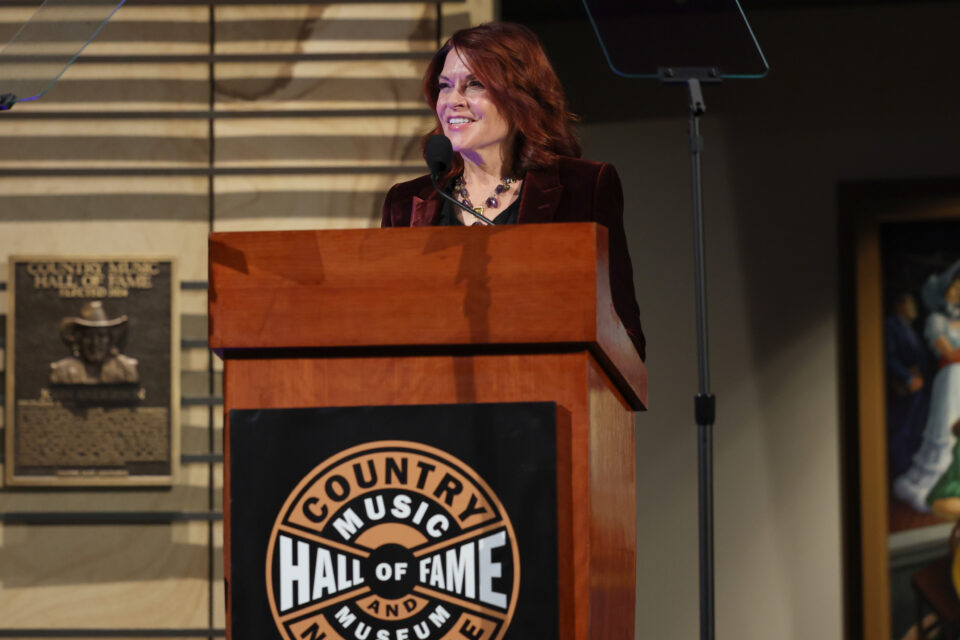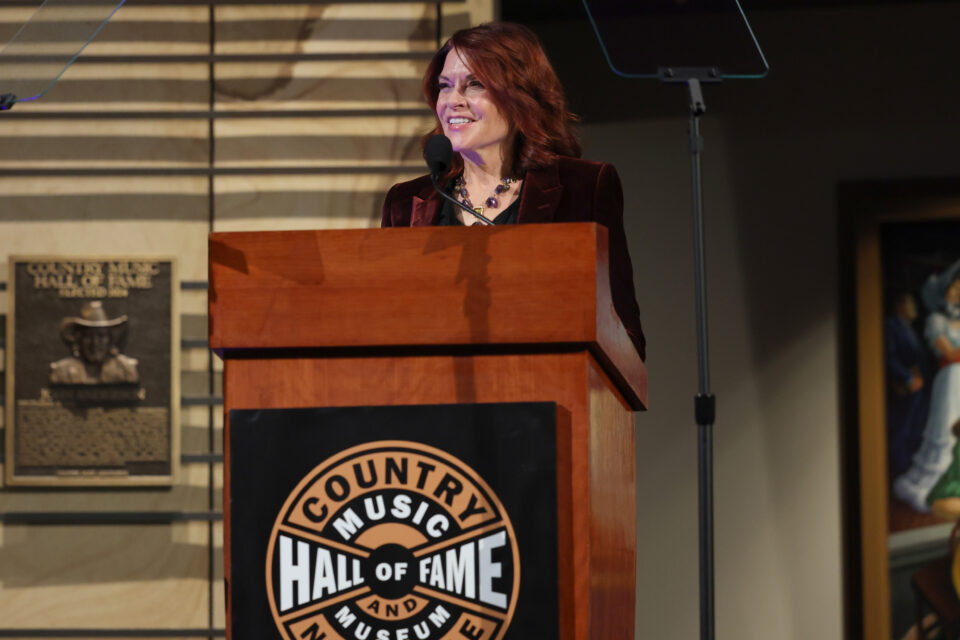
The Country Music Hall of Fame and Museum has opened its newest exhibit, putting the spotlight on Rosanne Cash, a second-generation star who’s fleshed out her own identity.
The story of Cash’s career is a complex one for the museum to tell. Her father Johnny Cash was a foundational figure in the genre, who’s continually invoked as a towering archetype and influence more than two decades after his passing. And yet, as she joked in her speech at the exhibit’s opening reception in early December, “I thought that everyone in Nashville considered me irredeemable, a prodigal.”
At that, the artist peers, industry dignitaries, media members, family and friends on hand laughed knowingly.
The display text itself begins with a matter-of-fact statement: “When Rosanne Cash moved from Los Angeles to Nashville in 1981, she had purple hair.”
The symbolism of that well-chosen detail is clear: her wild hair color signaled her youthful resistance to falling in line with country convention. An that was hardly the only way that she would distinguish herself from country music’s established sound and culture.
She brought new wave influences and literary leanings to her own head-turning work, and it took a long time for her to recognize that the profound kinship she shared with country lineage wasn’t only a matter of her bloodline.
“At 23,” she reflected from the podium, “I thought I was completely original, cut off from the past, from my legacy. And today I treasure that legacy, and the traditions I’ve built on.”
The exhibit depicts the dialogue she engaged in with her dad, the songs, letters and tokens they exchanged back and forth. At the same time, it shows how Rosanne continually expanded her world intellectually, and moved from writing songs to short stories, essays and memoir.
In her remarks, she spoke of how sifting through the mementos that she’d long stockpiled, now thoughtfully framed by museum curators, gave her new perspective on her lifelong restlessness: “So many of those attempts to break the binds, successful or not, are behind glass now, and in the vaults here.”
The exhibit’s title is “Rosanne Cash: Time Is a Mirror,” and it will remain open until March 2026.




